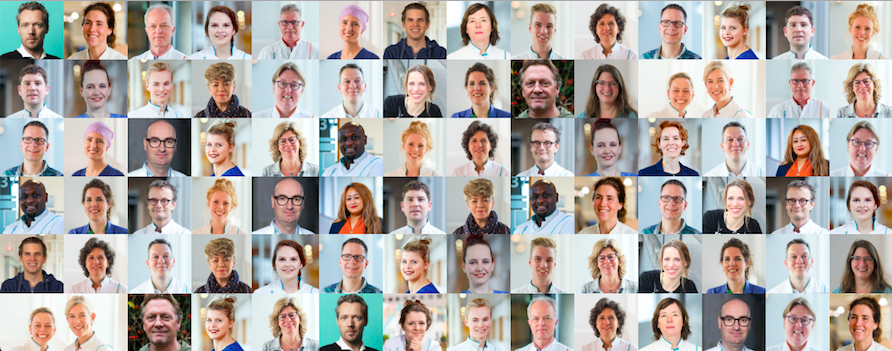Data Steward for Rare Diseases Project
Data Steward for Rare Diseases Project
You cannot apply for this job anymore (deadline was 23 Jun 2019).
Browse the current job offers or choose an item in the top navigation above.
Job description
As the number of rare disease patients is small by definition, there is a pressing need for the joint analysis of patient data on natural disease history, genetic makeup, disease modifiers and treatment outcomes. However, the available data is fragmented across different care providers, registries, and countries, and cannot be used to their full potential because data get lost, are not associated with descriptive metadata, or miss essential details on the way they are produced. We took important first steps in the development of interoperable patient registries, based on the FAIR principles, facilitating joint analysis of patient data from multiple registrie.
We are now looking for an enthusiastic and ambitious data steward, who will support clinicians to increase the FAIRness of their patient data, and unlock them for use in clinical patient management, research and improvement in quality of care. The data steward will develop data models and tools to capture FAIR data at the source (i.e. where the data are generated or analysed) and facilitate the publication of research data in FAIR Data Points and registries. A specific focus will be on the joint analysis of data from clinical registries and patient reported outcomes. The data steward will work in the context of the European Joint Programme on Rare Diseases and closely interact with data stewards appointed on other projects (X-omics, FAIRgenomes) with highly similar goals.
Tasks and responsibilities
We are now looking for an enthusiastic and ambitious data steward, who will support clinicians to increase the FAIRness of their patient data, and unlock them for use in clinical patient management, research and improvement in quality of care. The data steward will develop data models and tools to capture FAIR data at the source (i.e. where the data are generated or analysed) and facilitate the publication of research data in FAIR Data Points and registries. A specific focus will be on the joint analysis of data from clinical registries and patient reported outcomes. The data steward will work in the context of the European Joint Programme on Rare Diseases and closely interact with data stewards appointed on other projects (X-omics, FAIRgenomes) with highly similar goals.
Tasks and responsibilities
- Collaborate in designing (meta)data models for rare disease data based on existing ontologies and standards;
- Engaging with clinicians, and support them in FAIR data management and the data FAIRification process, e.g. through participation in Bring-Your-Own-Data workshops;
- Co-develop software, tooling, services, and Standard Operating Procedures (SOP) / policy around the FAIR capture and publication of data and metadata;
- Participation in national and international data stewardship discussion groups and coordination and competence building initiatives, such as the rare disease linked data and ontology task force and the data steward interest group run by the Dutch Techcentre for the Life Sciences;
- Work with the RTC-DS team to optimize the DRE for FAIR data stewardship.
Specifications
- max. 36 hours per week
- €2750—€4361 per month
- Nijmegen View on Google Maps
Requirements
- Academic title (MSc or PhD) in a relevant discipline (data management, data science, medicine, bioinformatics, computer science, artificial intelligence);
- A proven interest in data management and databases;
- Affinity for translating medical problems into ICT solutions;
- Has demonstrated to be able to communicate with multiple stakeholders with highly divergent backgrounds;
- Has proven to function well in multidisciplinary teams;
- Knowledge of medically relevant ontologies and formal data representations;
- Semantic web / linked data skills preferred;
- Programming skills in a relevant language (python, Java, C++, …) is a plus.
Conditions of employment
Upon commencement of employment we require a certificate of conduct (Verklaring Omtrent het Gedrag, VOG) and there will be, depending on the type of job, a screening based on the provided cv. Radboud university medical center's HR Department will apply for this certificate on your behalf.
Read more about the Radboudumc employment conditions and what our International Office can do for you when moving to the Netherlands.
Read more about the Radboudumc employment conditions and what our International Office can do for you when moving to the Netherlands.
Employer
Radboudumc
The Centre for Molecular and Biomolecular Informatics (CMBI) develops bioinformatics approaches that contribute to the understanding of disease mechanisms, personalized therapies and interventions, and a learning health care system. The CMBI is committed to the reusability of their data, tools, and services, and puts the FAIR (Findable, Accessible, Interpretable, Reusable) data principles into action.The Department of Radiology and Nuclear Medicine plays a leading role in intervention radiology. Prof. Schultze Kool plays a leading role in the European Reference Network on Rare Multisystemic Vascular Diseases (VASCERN) and is a recognized expert in the multidisciplinary treatment of vascular malformations.
The Radboud Technology Center for Data Stewardship (RTC-DS) develops and supports various ICT solutions for research data management. Their mission is to supply researchers with data management tools to both facilitate ground breaking research and simplify the compliance to laws, regulations and standards (like FAIR). At the heart of their suite of tools is the internationally acclaimed Digital Research Environment (DRE), a comprehensive and flexible analysis environment.
For more information see the websites below:
https://www.radboudumc.nl/en/people/peter-bram-t-hoen/computational-approaches-to-advance-personalized-medicine
https://www.radboudumc.nl/en/people/peter-bram-t-hoen
Radboudumc
Radboudumc strives to be a leading developer of sustainable, innovative and affordable healthcare to improve the health and wellbeing of people and society in the Netherlands and beyond. This is the core of our mission: To have a significant impact on healthcare. To get a better picture of what this entails, check out our strategy.
Read more about what it means to work at Radboudumc and how you can do your part.
Specifications
- Research, development, innovation
- Health
- max. 36 hours per week
- €2750—€4361 per month
- University graduate
- 101163-P509676-1
:fill(white)/logos/umcr-en-wide.png)
